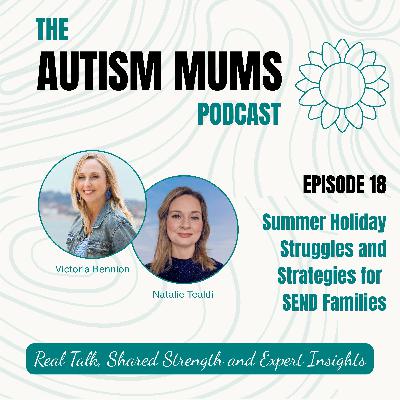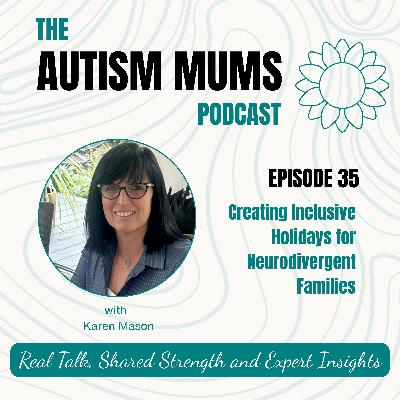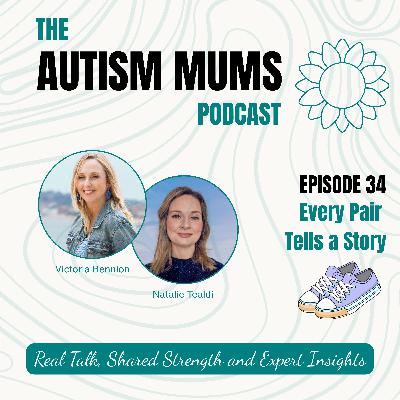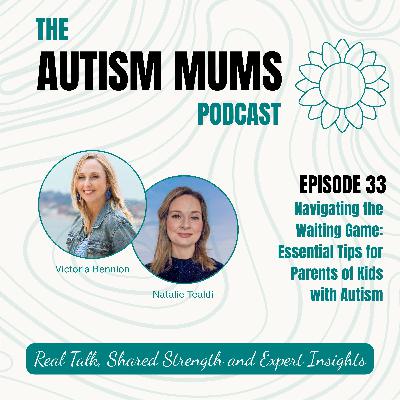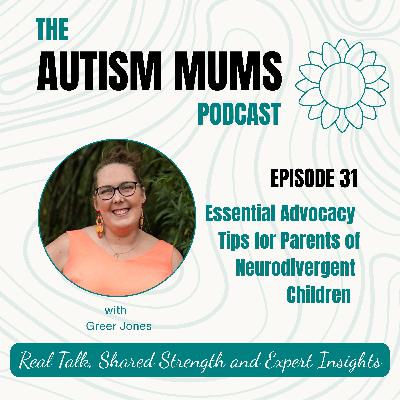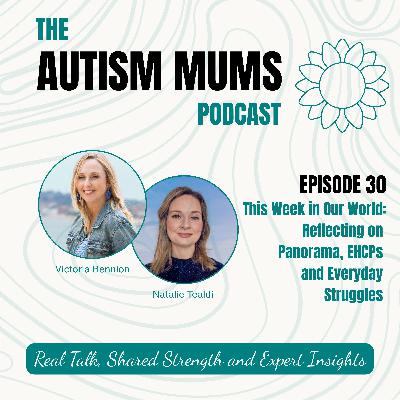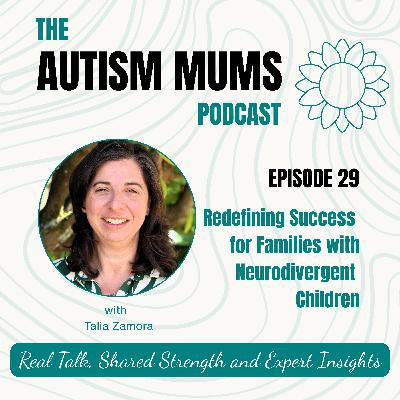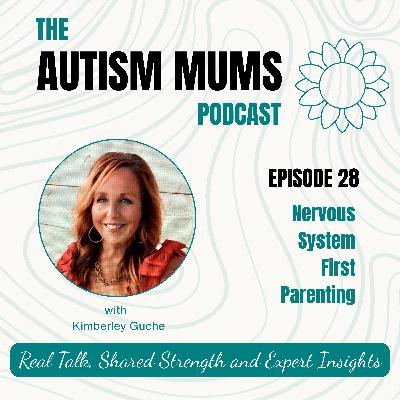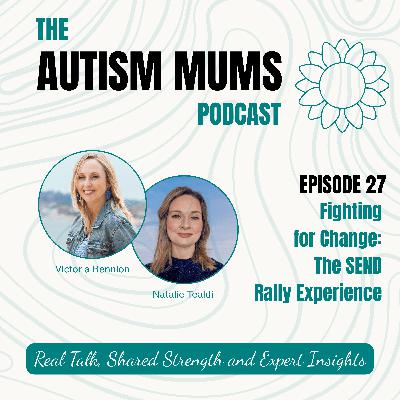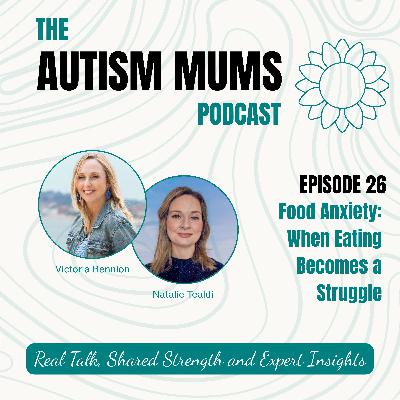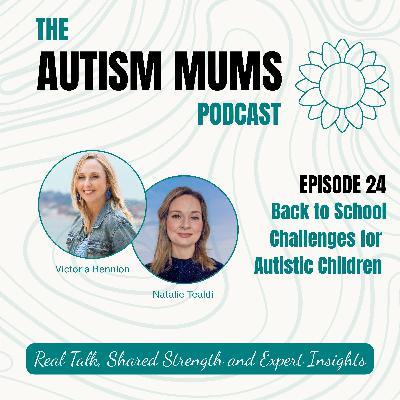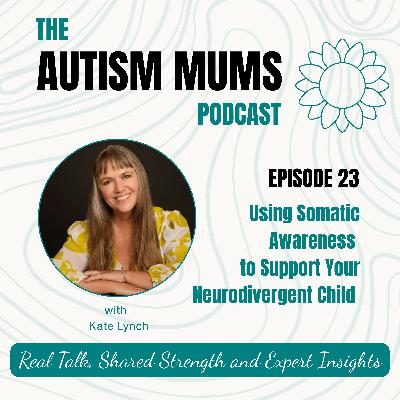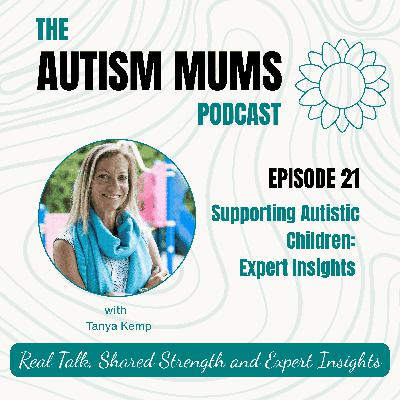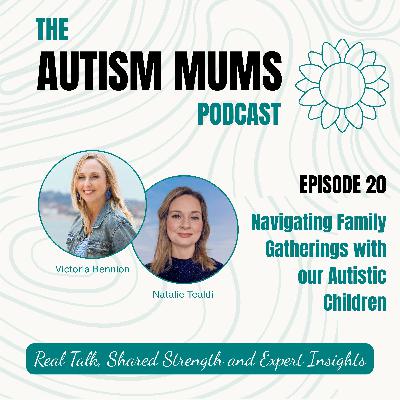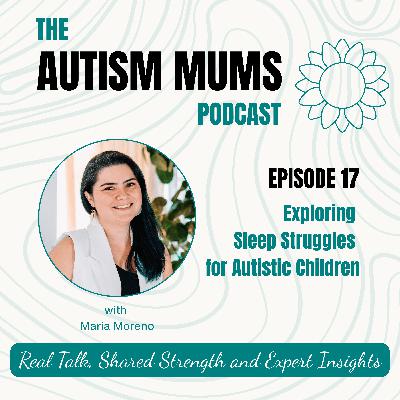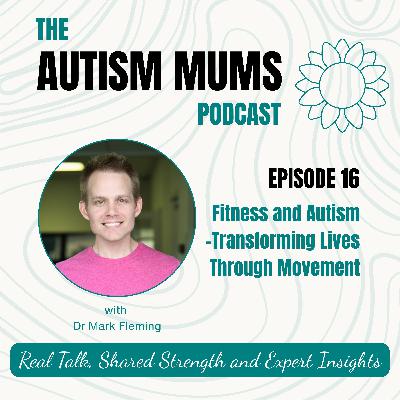Summer Holiday Struggles and Strategies for SEND Families
Description
In this week's episode of The Autism Mums Podcast Victoria and Natalie open up about the often-overlooked challenges that school holidays bring for families of autistic children. While many look forward to summer as a time to unwind, for SEND families, it can mean disrupted routines, inaccessible childcare, and emotional overload for both children and parents.
Key Takeaways
- The change in routine of the summer holidays can cause emotional distress for autistic children (such as Natalie's son.)
- Traditional holiday clubs are often not suitable for neurodivergent children
- Planning can be helpful for some families -Structured days with visual timetables and pre-planned outings
- Finding clubs with adequate support for older children—or any children under 8—is still a major barrier for many families.
- Even the best laid plans can need flexibility, especially when emotions run high or children have different needs on the day.
- You may find it works best to create moments for each child to have their needs met, sometimes separately.
- Finding other parents in similar situations provides not just understanding, but practical help from playdates to moral support.
- Self-care can be challenging but it's still important, even it you can find small moments for an evening meditation or a chat with a friend.
- Joy can be found in simpler, slower summer moments
Mentioned in This Episode
Learn more about visual timetables - https://www.caudwellchildren.com/visual-timetables-for-autistic-children/
ASCape - https://ascapegroup.org/
Connect with The Autism Mums
https://theautismmums.com/
Follow us on Instagram https://www.instagram.com/theautismmums
Follow us on TikTok https://www.tiktok.com/@theautismmums
Follow us on Facebook https://www.facebook.com/theautismmums
Transcript
[00:00:00 ] Hello and welcome to
the Autism Mums podcast. I'm Victoria. And I'm Natalie. We are two sisters
raising autistic children who know the joy, the challenges, and the everyday
moments. This is a supportive space for honest conversations, practical tips,
shared strength and expert advice. Whether you are celebrating a win, surviving
a meltdown, or just trying to make it through the day, we are right here with
you.
Join us as we share the ups, the downs, and everything in
between parenting autistic children.
Victoria Bennion:
Hello, I'm Victoria, and today we're talking about something that can be
especially tough for many families. The school holidays, when you hear the word
holiday, most people think of relaxing, unwinding, and quality family time. But
if you're raising an autistic child, the reality can look very different.
Victoria Bennion: It
does for Natalie. So in this episode, we're sharing honest stories from our own
lives. [00:01:00 ] We're talking about what's
worked, what hasn't, and sharing a few simple strategies that we've found
helpful that we hope might help you to make Summer a little more manageable.
Natalie Tealdi: this
is a time of year that we really struggle with because our son really loves his
routine, so now he's in A school he enjoys, he likes to go there every day and
he'd quite happily go there every day of the week. Thank you very much. All
year round, which I'm sure his teachers would absolutely love.
Natalie Tealdi: So we
notice as school holidays are approaching perhaps. Two weeks before each
holiday, he starts to get more stressed. We see more stimming, more
dysregulated behaviors, his diet's affected, doesn't eat as much, those kind of
things. So when it actually gets to holidays, he just doesn not like being out
of his routine,
Victoria Bennion:
I've heard other parents say the same struggle, but for my son, he's counting
down [00:02:00 ] to the holidays and he loves
that all the pressure has taken off. I so it's really interesting always for me
to hear I'm sorry for you that it's challenging.
Natalie Tealdi: Yeah,
and I think it is also, it's a bit of a mindset thing because you hear holiday
and you think, oh, time to relax. Oh, it'd be so nice if it was like that. And
I know that it is like that for some families and that's brilliant. But for us
it actually means more work, more planning needs to be involved.
Natalie Tealdi: He's
very physical, so it's not only the mental planning that needs to go into it,
it's the physical as well. I need to be on it. I need to be doing things with
him because he needs that physical stimulation.
Victoria Bennion: I
remember when he was quite little and you were trying to find suitable clubs
and you had a bad experience with the holiday club. That was quite early on, .
That was when you were starting to realize that there were some issues here.
Things were not all Okay.
Natalie Tealdi: That
club [00:03:00 ] was, I'd put him in for three
full days a week. I think it was two or three, so that I could work. At that
point I was working at a university. So I put him into. This club, and it was a
disaster. He just could not cope. He tried to run away several times. He was
kicking out. He just did not want to be there, did not want to join in and
wasn't coping.
Natalie Tealdi: And
at the time I didn't know what was going on because I had inklings that he was
struggling with things, but I didn't really know why. And we ended up taking
him out of there and I had to reduce my work hours, which was very stressful
'cause I just couldn't do my job properly. And it was then, that was before he
started school.
Natalie Tealdi: So it
was then that I contacted the senco at the school to alert them to this
experience so that they were a bit prepared for when he started school.
Victoria Bennion: The
following year, when you started. Looking for clubs or how you were gonna cover
the summer holidays, you knew that clubs like that wouldn't [00:04:00 ] be a good fit for your son.
Natalie Tealdi:
Exactly. We knew that he needed a lot more support. He finds following
instructions very difficult, and also he doesn't. Really like following
instructions. So if a game is a certain way, he will look at it and think let's
play it a different way and design his own. So he's very, it's clever in that
way, but he needs a lot of support for following instructions and also managing
his emotions too.
Victoria Bennion:
When you are looking at clubs, what are the kind of clubs that he would like to
do?
Natalie Tealdi: He
enjoys water sports climbing. That kind of thing. Very physical things, but he
would need somebody with him.
Victoria Bennion: Was
his age a factor in finding clubs that had the right support?
Natalie Tealdi: Yeah
I found that under eight, particularly a lot of clubs just wouldn't take under
eights. I dunno why that is.
Natalie Tealdi: I
wonder if it's to do with [00:05:00 ] personal
care or.
Victoria Bennion:
Could be.
Natalie Tealdi: I
don't know, level of maturity generally,
Victoria Bennion: So
what did you do? In that time where you couldn't find clubs that would take him
'cause he wasn't old enough, if they did have the right support and you
couldn't put him into clubs for neurotypical children because he wouldn't cope
or they wouldn't go well. So what were you left with when you were trying to
juggle working and your other child?
Natalie Tealdi: It's
basically down to us. So what we actually did was get a nanny for our younger
child because that was easier to find care for her. It's expensive option. But
I didn't want to put her in a child minder when she was so little. So we got a
nanny in that could look after her sometimes in the home and sometimes take her
out so that I could fully focus on my son.
Natalie Tealdi: And
we still have the nanny now. Not as many hours, but. We do, and we also, we are
lucky enough to, [00:06:00 ] we do get funding
for our son now to have a pa, but that's only for four hours a week during
holidays. So when it comes to me working, it doesn't leave much room with the
childcare that's involved to me and my husband.
Natalie Tealdi: Take
a lot of time off.
Victoria Bennion: I
think that's true of a lot of families who have the same difficulties as you do
is very hard. Few weeks to juggle.
Natalie Tealdi: Yeah,
and I find that I want to work because that is my time off. And then I feel
guilty saying that. 'cause of course I like to spend time with my children, but
at the same time, that is my respite as well. And I do need that time to just
be me.
Victoria Bennion:
That makes sense. Since he's turned 8, have you found that now you have more
options for this summer?
Nata

